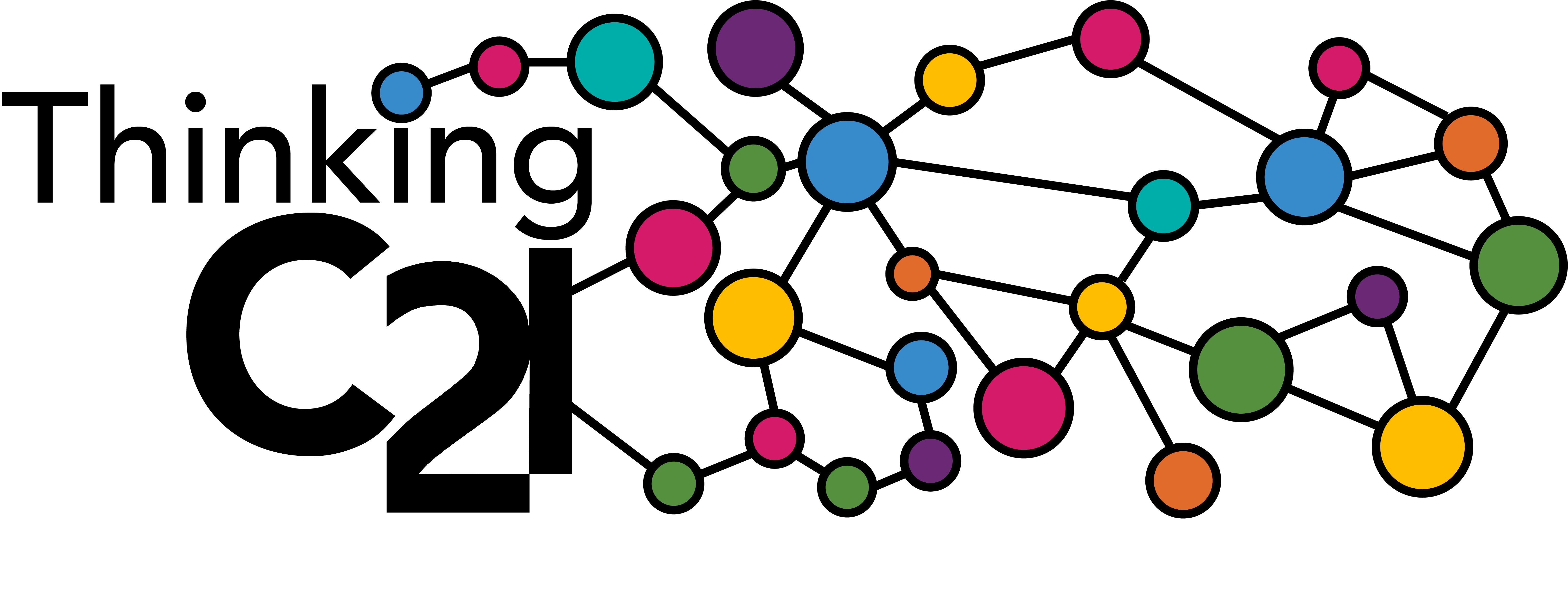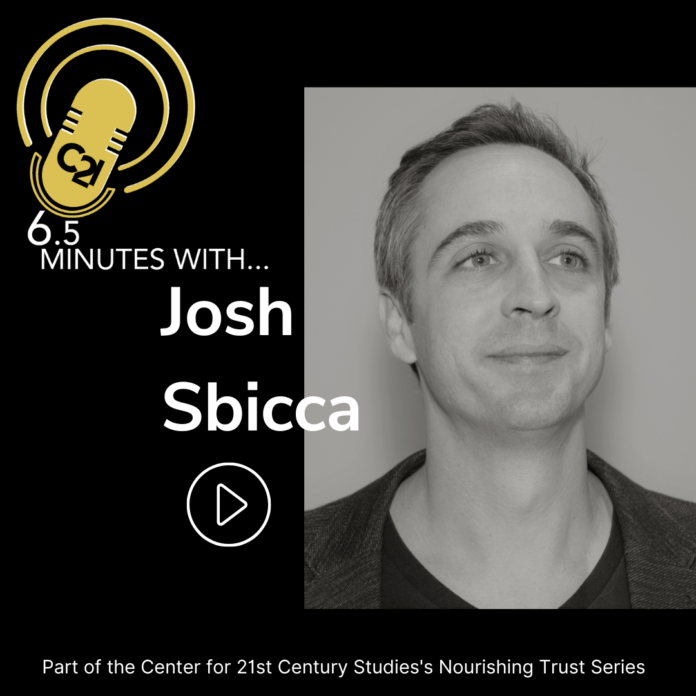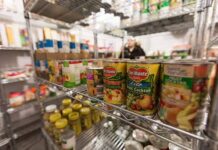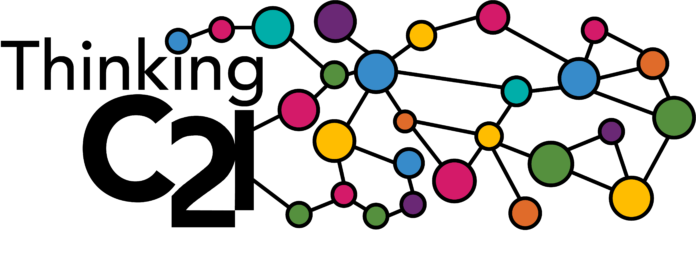Sociologist Josh Sbicca talks through definitions of food justice and the work of the Prison Agriculture Lab to bring further context to the philosophies behind food and trust. He also discusses his book, Food Justice Now!
Transcript of the podcast:
Joshua Rutherford:
You’re listening to 6.5 Minutes with C21, an audio introduction to the topics, experts, and leaders who take part in the conversations hosted by the Center for 21st Century Studies. I’m Joshua Rutherford, graduate fellow at the Center. Recently, Deputy Director Nicole Welk-Joerger spoke with Josh Sbicca, Associate Professor of Sociology at Colorado State University and author of Food Justice Now!
Nicole Welk-Joerger:
How did you get to your research projects, including your book, Food Justice Now!?
Josh Sbicca:
I think the path leads back to college in many respects. I was involved with a lot of food labor solidarity work, and in particular, I was doing work to support the coalition of Immokalee workers back when they were launching their very first boycott and just started to learn about a lot of conditions in the fields of Florida. During that same kind of time period of my life, there were cafeteria workers that were organized with service employees of the International Union and they were seeking out students’ support to boycott the cafeteria while they negotiated a new contract, and I worked a lot on that effort as well. And so, those two efforts started to sensitize me, particularly to food justice, at least it pertains to the hands that feed us. But post-graduation, I got involved more with urban agriculture work and in particular, the work of planting justice. So, I was on their board of directors from founding of that organization, and that really opened up my experience to understanding what it was like to do food justice work by creating living wage jobs within kind of the urban agriculture community, and in particular, working with formerly incarcerated people. And then in graduate school, I pursued a PHD in Sociology at the University of Florida, set out to trace organizations in the state that were working to address different structural inequalities that were intersecting with the food system. And at the center of these efforts, what I’ve found was they were working either to advance social justice in the food system itself, or were using foods as a means to advance social justice in other ways. And so, that work really set the foundation for what would later become my first book, Food Justice Now!
Nicole Welk-Joerger:
That’s fantastic! And the book really does this excellent job of linking activist movements with issues of food, much like how you were talking about how you got to this project. But as you know — as most people know — food justice is a really big concept and it has multiple dimensions, and people are tackling it in different ways. How do you address it in your work?
Josh Sbicca:
So, Food Justice Now! begins with an epigraph from Grace Lee Boggs, and it reads: “History is not the past. It’s the stories we tell about the past. How we tell these stories — triumphantly or self-critically, metaphysically or dialectically” has a lot to do with whether we cut short or advance our evolution as human beings. And I really like this quote because her perspective suggests that looking back is not only a way to understand the present, but to change it. And I really adopt this approach in my book to tell stories that connect food justice to other social struggles. So for example, I tie the histories of the United Farm Workers in the Black Panther Party to contemporary food labor organizing and resistance to food apartheid respectively. So, my definition of food justice is that it’s the fight for social justice throughout the entire food system, which entails engaging with a lot of dimensions of economic, political, social, and maybe even ecological life. And I really prefer this kind of capacious definition of food justice because it accounts for a range of systems of oppression that really have to be tackled alongside any food-specific concern. So in practice what this means for my work as an activist scholar and educator is that I look for how food is embedded in and modulates institutions and logics that make up racial capitalism, liberalism, and other kinds of systems. But conversely, I think what’s important is that this approach sensitizes me to how people navigate and change oppressive conditions. So really fundamentally, I see food justice as an evolving movement and body of research which is informing my most recent work into the contours of the agricultural industrial complex, and the ways in which food can be a site for advancing prison abolition.
Nicole Welk-Joerger:
And that’s a really good segue into this next question that I have. What is the prison agriculture lab that you’re a part of? And how does it tell a different story of food as a great connector or a site for community building and trust?
Josh Sbicca:
So, the Prison Agriculture Lab is a collaborative focused on understanding the history and practice of agriculture in the criminal punishment system. And so what we do is use different kinds of storytelling to communicate the connections between racial capitalism, carcerality, and agriculture. So, one of the take-home messages of the lab’s research so far is that we are deeply connected to carceral systems. And prison agriculture is really just one way to see this. So, simply put for those unfamiliar with this term, carcerality refers to practices and ideologies of social control. And carcerality operates not only through prisons and policing, but also through the discipline and surveillance of racialized class and gender groups. So, we oftentimes think of this as endemic to the criminal punishment system, but really, it’s also quite prevalent in food systems. So, this term really helps capture the racial capitalist structure that produces food inequalities. Coming back to the lab because agriculture helps racial capitalism grow by signaling that some people deserve less. So, one thing we found really commonly in doing our research is, you know, you would hear discourses like “prisoners deserve low pay for hard work” while state and private interests profit. So, the question that we’re asking is, you know, what does it say that a prison system that disproportionately incarcerates poor Black, Latinx, and Indigenous people, and puts them to work or trains them for an agricultural sector that is demonstrably difficult to make a living, and has moreover been built on and perpetuates ethno-racial hierarchies. And the framing by the penal system is that agriculture has lots of benefits, which in the aggregate then justifies incarceration as a solution to social problems that really should be solved in non-carceral ways. So, attention to prison agriculture shows why we should be focused on decarceration and redirecting public resources to communities that are historically dispossessed of their land and labor, making livelihoods like farming actually tenable. We shouldn’t be relying essentially on prisons as the means through which we get people into agriculture, if that’s even something that happens to begin with.
Nicole Welk-Joerger:
The Center is exploring themes of justice and trust as it relates to food. How might we think, or rethink, the relationship between trust and food more generally based on your work?
Josh Sbicca:
I think that as this pertains to questions of trust, we cannot trust that racial capitalism and the carceral state will do anything other than operate in ways that maintain their stranglehold on our lives and imaginations. And so, transformative change is really only possible when we reject individualistic, market-based, color-blind, and partial reforms. But abolition really is not just about dismantling or negative projects. You know, with that rejection is also an assertion, and that assertion is that things can be different and that people can build communities of care, mutual aid, and trust that don’t rely on corporate and state actors that are ultimately more concerned with maintaining social control than with fostering safety and well-being. Basically, we have the solutions within our communities already. It’s really a matter of whether or not we have the resources to actualize them.
Joshua Rutherford:
To further engage with this interview, other conservations in participatory research, and reading activities for Nourishing Trust, please visit our website at uwm.edu/c21. If not there, we hope to catch you when you have another 6.5 Minutes to spare.








